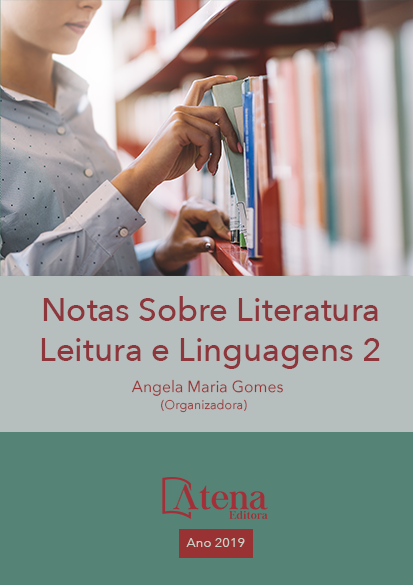
LEITURAS ROSIANAS: COMICIDADE, CULTURA E LITERATURA
Este trabalho pretende fazer leituras
de trechos da obra Grande Sertão: veredas
(1956), de João Guimarães Rosa (1908-1967),
buscando a interface entre a ficção rosiana
e a cultura sob o viés da comicidade. Para
tanto, partiremos de um instrumental teórico
sobre o cômico e o risível, a saber, Aristóteles
(2008), Bergson (2007), Freud (1977), Jolles
(1976), Propp (1992), Minois (2003), além das
discussões críticas de Candido (1990), Galvão
(1986), Nunes (2013), Utéza (1994) e Hansen
(2000). Ademais, a função desempenhada pelos
processos cômicos, além da representação do
riso, presentes nessa narrativa nos permite
compreender o papel da comicidade nas
suas distintas formas no romance rosiano. As
recriações linguísticas rosianas, conforme as
discussões de Freud (1977), derivam prazer
em momentos de tensão, suscitando um alívio,
fazendo com que não só que leitor prossiga na
leitura, como também que a narrativa, porque
densa devido às tensões das batalhas dos
jagunços, flua com momentos de distensão. No
entanto, a funcionalidade do risível vai além disso:
a relativização de valores e de comportamentos
talvez sejam o mais recorrente. Nesse caso,
portanto, o cômico e o riso decorrem de uma
inversão da lógica cultural e concorrem para a
superação de preocupações metafísicas pela
via do riso.
LEITURAS ROSIANAS: COMICIDADE, CULTURA E LITERATURA
-
DOI: 10.22533/at.ed.70419250114
-
Palavras-chave: Grande Sertão: veredas, comicidade, cultura.
-
Keywords: Grande Sertão: veredas, comedy, culture.
-
Abstract:
This paper has read of excerpts
from the work Grande Sertão: veredas (1956),
by João Guimarães Rosa (1908-1967), seeking
the interface between Rosy fiction and culture
under the bias of comedy. To do so, we will
start with a theoretical instrument on the comic
and the laughable, namely, Aristotle (2008),
Bergson (2007), Freud (1977), Jolles (1976),
Propp (1992), Minois critical discussions of
Candido (1990), Galvão (1986), Nunes (2013),
Utéza (1994) and Hansen (2000). In addition,
the function performed by the comic processes,
besides the representation of laughter, present
in this narrative allows us to understand the
role of comic in its different forms in the Rosian
novel. Rosian linguistic re-creations, according
to Freud’s discussions (1977), derive pleasure
in moments of tension, provoking a relief,
causing not only the reader to continue reading,
but also that the narrative, because dense due
to the tensions of the battles of the jagunços,
flow with moments of distension. However,
the functionality of risible goes beyond that:
the relativization of values and behaviors may
be the most recurrent. In this case, therefore, the comic and laughter derive from a
reversal of cultural logic and contribute to the overcoming of metaphysical concerns
through laughter.
-
Número de páginas: 15
- JOÃO PAULO SANTOS SILVA


